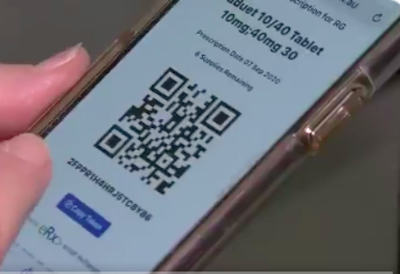
The Australian Department of Health will continue to subsidise the SMS costs for GPs issuing electronic prescription tokens to patients’ mobile phones until the end of June 2022.
However, it intends to cease the special arrangements for image-based prescriptions rolled out at the start of the COVID-19 pandemic as scheduled on September 30 this year.
Image-based prescribing allowed doctors to email, text or fax a digital image of a paper script to the patient’s pharmacy following a telehealth consult.

Delhi’s digital health cards, NHS app’s pingdemic, managing the cost of cyberattacks, COVID-19 misinformation and Facebook, Accenture hit by cyberattack, US telemedicine fraud, Bluetooth patient tracking, Dedalus in the cloud, joining up health records
Delhi health info management system to be launched next year
Hindustan Times ~ Staff writer ~ 13/08/2021
The HIMS project envisages digital health cards for each patient – essentially be a QR code-based system – that will keep a record of details such as health checkups, follow-ups, surgeries, medications and vaccinations.

Vague mutterings about the real value of once-dominant general practice management software vendor MedicalDirector have echoed through the years, particularly since it was flogged off to a private equity firm by former owner Primary Health Care (now Healius) in 2016 for what we thought of at the time as the extravagant sum of $155 million.
Five years later and the private equity owners have done their job, stripping the company of staff through multiple rounds of redundancies to cut costs and maximise their sale price. Telstra Health, amongst others, has been sniffing around for a few years, and earlier this week announced it had snapped MD up for the astonishing sum of $350 million. It dwarfs Telstra Health’s earlier acquisition of 18-odd companies for a combined total of $235-240 million, as well as its recent purchase of PowerHealth Solutions for $95m.
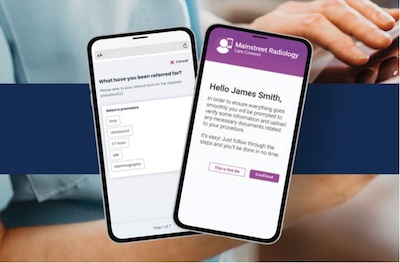
Radiology information system vendor Comrad has received its notice of integration with Medicare Web Services, thought to be one of the first major healthcare vendors to achieve the feat.
Comrad has also recently announced the second release of its web-based patient engagement platform Aura Care Connect, featuring a co-branded app for patient pre-registration workflows to be completed and integrated back into the COMRAD RIS workflow.
The Melbourne-headquartered company has also developed an API to Care Connect that it is making available to other vendors with the intention of opening up the healthcare ecosystem, including offering Care Connect’s patient engagement and billing capabilities to non-Comrad users.

Pharmacy system vendor Minfos released new active script list (ASL) capability in its Dispense workflow, allowing pharmacists to store and dispense single or multiple prescriptions from a patient’s list.
Active script lists have been introduced predominantly for patients with multiple prescriptions normally kept at a regular pharmacy and do not require them to produce a paper or token prescription.

Telehealth solution specialists Coviu and Visionflex are collaborating on a project with the University of Sydney to integrate Visionflex’s digital examination tools with Coviu’s telehealth platform.
The idea is to develop a proof of concept to target the aged care sector in particular and develop real-world evidence for aged care providers.

Patient engagement platform vendor Healthsite has partnered with payment solution specialist Tyro to roll out an online payment facility integrated into Healthsite’s online booking system.
The payments feature caters for two types of online payments, including a pre-payment facility that can accept the full amount of the consultation upfront prior to the online booking being submitted.

Aged care provider Catholic Healthcare has appointed former Healthdirect Australia CEO Karen Borg as its new CEO, overseeing one of the largest providers of aged and community services in Australia.
Ms Borg was also previously president for the Asia Pacific region for medical device manufacturer ResMed, and an executive with Johnson & Johnson.
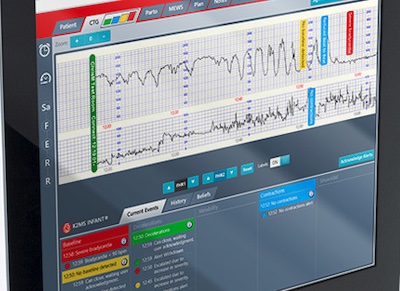
Queensland’s Mater Mothers’ Hospitals has published a study into the use of a recently introduced clinical decision support system for intrapartum foetal monitoring that shows good outcomes after implementation, primarily through a reduction in neonatal intensive care (NICU) admissions.
Published in the Australian and New Zealand Journal of Obstetrics and Gynaecology, the study looked at the 18 months before and after the introduction of the INFANT (Intelligent Fetal AssessmeNT) system, which is integrated with K2 Medical Systems’ Guardian electronic cardiotocograph (CTG) monitoring technology.

Specialist medical practice management software vendor Genie Solutions plans to make three more integrated products available in its cloud marketplace, including a new specialist version of Cubiko’s business analysis and insights tool, MetaOptima’s DermEngine AI-enabled dermatology software, and a full integration with Nuance’s Dragon Medical One for automated speech recognition.
Genie Solutions, which recently signed up the 1000th practice to use its Gentu cloud solution, has been developing the cloud marketplace over the last 18 months and went live with its first new integration, a booking and billing solution developed in partnership with HotDoc, last year.

Healius subsidiary Laverty Pathology has now connected to the My Health Record and is uploading pathology reports for patients from its 700 collection centres in NSW and the ACT.
It joins stablemates Dorevitch Pathology in Victoria and Abbott Pathology in South Australia, which added the functionality in December last year.

Telstra Health has entered into an agreement to buy practice management software vendor MedicalDirector for $350 million.
It is the largest purchase in Telstra Health’s stable of health IT companies, which also includes the recent purchase of Powerhealth Solutions for $95m.
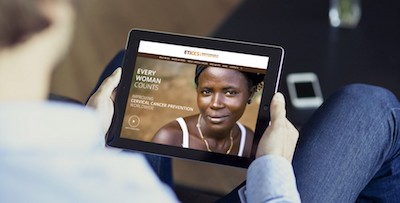
AI and COVID-19, digital health app overload, EMRs and the pandemic, Telstra Health’s UK division, Japan’s vaccine passport, mHealth in Africa, Google Cloud healthcare interoperability solution, predicting COVID surges, Ireland’s vaccine certificate
Hundreds of AI tools have been built to catch covid. None of them helped.
MIT Technology Review ~ Will Douglas Heaven ~ 30/07/2021
Some have been used in hospitals, despite not being properly tested. But the pandemic could help make medical AI better.
Digital health app market booming, finds IQVIA report
Medical Device Network ~ Chloe Kent ~ 05/08/2021
However, the average quality of these products was found to be middling, with the report advising careful selection by consumers.
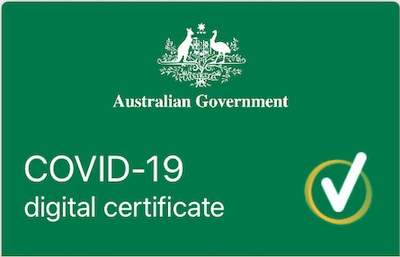
Pulse+IT is not alone in criticising certain digital platforms developed by various governments for healthcare and we are certainly not going to stop now, but we are happy to give credit where credit is due when it comes to good systems that appear to work. In particular, we’d like to laud the improvements made to myGov, which was an absolute trainwreck in its early days but has now become a reasonably seamless operation.
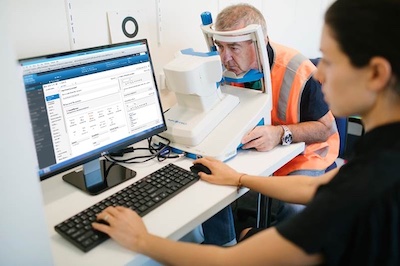
Global EMR giant Cerner has made sweeping changes to its Australian management structure, making three state-based general manager positions redundant following the appointment of a new managing director for the Asia Pacific region last month.
NSW general manager Paul Willma, Queensland and Asia general manager Trina Adams and Victoria and South Australia general manager Israel Armstrong have all been made redundant as part of a global restructure.

Queensland’s Director-General for Health John Wakefield has ordered a review of Far North Queensland’s new Regional Information via Electronic Records (RIVeR) system after serious criticism from clinicians and unions.
RIVeR, which is based on Telstra Health’s Communicare platform, has been rolled out to 28 rural and remote sites in the Cairns and Hinterland Hospital and Health Service (CHHHS) and Torres and Cape HHS (TCHHS) regions but there have been calls for the project to be paused by one union, while another is advising members to use alternatives if they think RIVeR is creating serious safety issues.

Health insurer nib has partnered with software vendor Civica and claims and payment platform LanternPay to roll out a digital claiming solution to over 1300 pharmacies in Australia.
The solution allows nib members to claim on the spot for private prescriptions without the need for members to pay first and claim later. It is expected to also be used in future for pathology claims.

Practice management system vendor Medtech Global has acquired DrInfo, which markets a population health, audit and compliance tool used by over 50 per cent of New Zealand general practices.
The tool, which is integrated with Medtech’s practice management systems Medtech32 and Medtech Evolution, as well as My Practice and Intrahealth’s Profile for Windows, assists GPs to manage government health initiatives and programs for vaccinations, smoking, diabetes, planned treatment and patient recalls.

Google Cloud is soon to release a new healthcare data engine that it says will enable better interoperability in healthcare and the life sciences.
The Google Cloud Healthcare Data Engine is described as an end-to-end solution for healthcare and life sciences organisations that harmonises data from multiple sources, including medical records, claims, clinical trials and research data in a secure and scalable cloud environment.

The COVID-19 digital certificate issued to people who have had both doses of their vaccine can now be added to Apple Wallet on iOS and Google Pay on Android phones.
The certificate is available in Medicare online accounts through myGov, and the Express Plus Medicare app, and then added to either digital wallet.
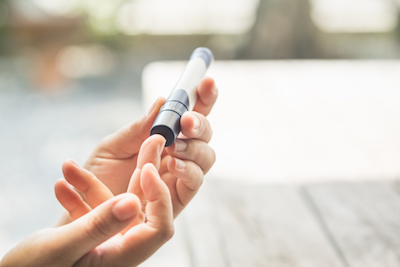
Western Victoria Primary Health Network (WVPHN) is coordinating a year-long trial of remote monitoring technology in general practices in the region, subsidising 30 licences for the CareMonitor remote patient monitoring solution.
The trial aims to determine the viability of the ongoing use of real-time remote monitoring technology for patients with chronic conditions in western Victoria.
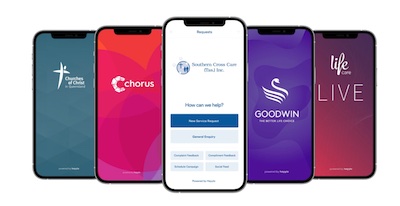
Telstra Health has partnered with client communication platform Hayylo to provide an integrated solution for the aged, community and disability care sector, aiming to simplify care recipient and community communications.
Hayylo is a turnkey client communication platform and app that has been optimised for providers using Telstra Health’s software and operates in the background to automate notifications about schedules, visit details, requests, care notes, statements and budgets.

Germany to adopt open source instant messaging tool, IBM’s blockchain-based vaccine passport, European comparison on vax passes, NHS allows patients to see who is accessing their data, WHO warns of AI risks, DVA slows Cerner EHR down, stolen PHI buys SUVs, Fujitsu launches Epic in the Cloud
Germany's healthcare system is using this open source standard for encrypted instant messaging
ZDNet ~ Daphne Leprince-Ringuet ~ 23/07/2021
The entire healthcare system in Germany, from hospitals through clinics and insurance companies, will switch to this homegrown communication and collaboration network, which was hailed as a milestone in the country's digital transformation.
More than 450 airlines can now use IBM’s blockchain-based vaccine passport
Quartz ~ Anne Quito ~ 23/07/2021
As international travel ramps up in parts of the world, Amadeus, a reservation system used by 474 airlines, has adopted IBM’s digital health passport solution called IBM Digital Health Pass.
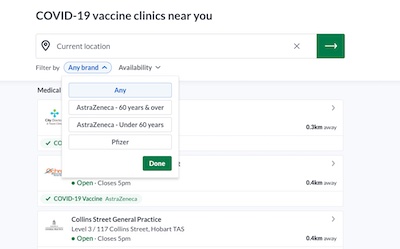
Pulse+IT’s Tasmanian correspondent has had the great good fortune to live in close proximity to one of the quarantine hotels called into action recently to house seasonal workers from the Pacific Islands. From what we can tell, some locals returning from the Indian subcontinent who have to do their two weeks in isolation have been housed there too. But it is the Samoan guests in particular who have become famous down our way for their fantastic spirits while isolating for the past fortnight, and for the joy they have given voice to.
With no local infections recorded for the last 400+ days we are in a good position in Tasmania – recently voted one of the best places in the world in which to ride out an apocalypse, along with New Zealand, Iceland and Ireland – so the residents of the quarantine hotels have been given a little leeway and allowed out on the balconies to enjoy the Hobart winter and regale us with their song. They have been marvellous – if you haven’t heard about them, click here and here. The other guests have also been in good spirits and have been laughing and chatting and waving to passers-by, which we have enjoyed immensely.
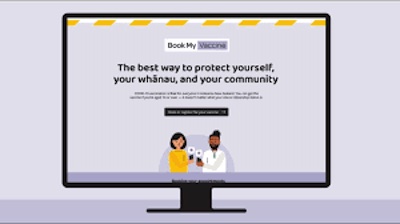
More than 100,000 new bookings were made on the first day of New Zealand's Book My Vaccine online booking system when it opened on Wednesday to people aged between 60 and 64.
Future bookings through the system total 943,187, with New Zealand now having fully vaccinated 711,621 people.
Director-General of Health Ashley Bloomfield described the first day of the COVID-19 vaccination national booking system being live to the public as “a resounding success”. It went live on Wednesday following several trials and configuration over the last six weeks.

Qantas has confirmed it will use the International Air Transport Association’s (IATA) digital health pass when international flights resume, ensuring that passengers can share verified COVID test results and vaccine information in a secure manner with border health officials and airline staff.
IATA has developed an app that connects passengers to certified testing labs so results can be uploaded to the platform and passengers can show they have a vaccine certificate or proof of a negative COVID test result before their flight.
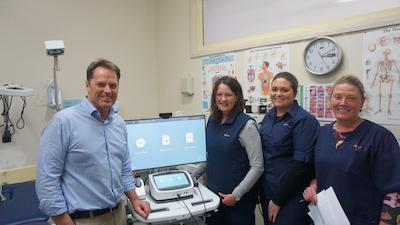
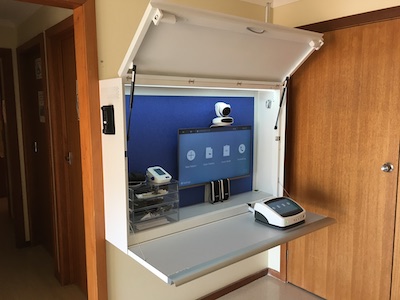
Telehealth hardware solution specialist Visionflex is deploying its telehealth units with new “unattended access” capability, allowing patients to present to a clinic after hours and contact a remote doctor by video link.
The technology is being deployed as a standard feature on Visionflex’s ProEX units to remote communities, truck stops and cattle stations around the country, following a successful pilot in Wanaaring in far western NSW in partnership with the Royal Flying Doctor Service NSW.
The unattended access solution allows patients who present after hours when the local nurse is off duty to press an intercom button. Remote doctors based in Broken Hill can view the patient through the door camera, and open the door and the telehealth cabinet remotely.

The seasonal workers from Samoa who delighted Tasmanians with their singing and cheerful spirits during their recent 14-day quarantine in Hobart were supported by a virtual monitoring system rolled out in quick time by Telstra Health, in partnership with parent company Telstra and the Tasmanian Health Service.
Telstra Health’s Virtual Health monitoring devices were deployed to digitally monitor and record the guests’ health status and to help reduce the opportunity for transmission of COVID-19 to clinical staff, hotel employees and other people in quarantine.
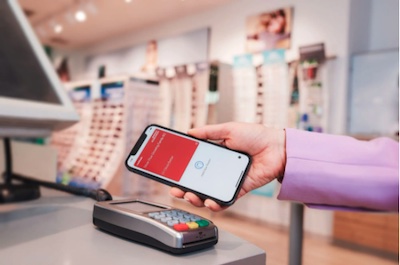
Four of Australia’s biggest health insurers are now allowing members to make claims on the spot by tapping their iPhone or Apple Watch on their healthcare practitioners’ HICAPS terminal.
Member cards for Bupa, Medibank, nib and GU health can now be added to the Apple Wallet on iPhones and Apple Watches through the health funds’ apps, allowing them to tap and claim at 20,000 healthcare practices around the country rather than swiping a plastic card.

New Zealand is set to go live with its new Skedulo-based online booking system Book My Vaccine on Wednesday as it ramps up its national COVID-19 vaccination program, opening up appointment bookings for people between 60 and 65 who are the first tranche in group 4 of NZ’s staged roll outs.
It has previously limited vaccinations to border or managed isolation and quarantine (MIQ) workers, high-risk frontline workers, those aged over 65 and people most at risk of severe illness from COVID-19.

Victoria’s South West Alliance of Rural Health (SWARH) and Geelong-based Barwon Health plan to roll out InterSystems’ IRIS for Health data platform to create a real-time analytics repository supporting AI and machine learning, and business and clinical intelligence.
IRIS for Health will provide a single platform for the two health services, which each support different IT environments, and enable the organisations to capture data from HL7 and other messages to create a real-time health data lake.
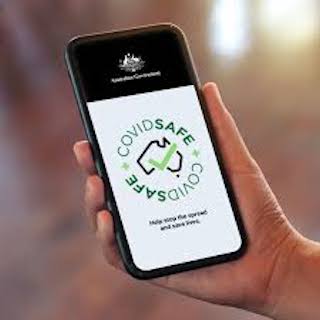
An independent evaluation of the Australian government’s heavily promoted COVIDSafe app has been released under freedom of information laws but has been heavily redacted, with only minimal information open to public scrutiny.
The report was required under Privacy Act regulations and was written by research consultancy Abt Associates with technical assistance from Bdna. While a draft was completed last December, it took an FOI request by the Canberra Times for it to be released.

Medical practice software vendor Shexie has released a new statistical analysis form builder and an online forms builder suite to allow users of its Platinum practice management and clinical software to build their own statistical and informational screens.
Shexie also has an online library of pre-designed statistical forms so if there is already a form designed for the practice’s specialty, it can be imported and immediately used, but can also be edited to suit the specific needs of the practice.

Google Cloud and AWS health data offerings, doctors want EMR interoperability, dodgy NHS Covid Passes, app to verify NHS Covid Passes, more on US DVA EHR modernisation, Elekta software hack, VC funding for digital health hits $15 billion, RLDatix buys Allocate Software
Google Cloud goes head-to-head with AWS with tool to standardize health data
MedCity News ~ Elise Reuter ~ 22/07/2021
Both cloud competitors are offering solutions that use FHIR to pull together and standardize health data from disparate sources.

The pain for the locked down people of NSW continued this week and got worse on Friday, with NSW Premier Gladys Berejiklian calling the situation in her state a national emergency, Victorian Premier Daniel Andrews calling for a ring of steel around greater Sydney and New Zealand Prime Minister Jacinda Ardern bursting the trans-Tasman bubble and rolling up the shutters on quarantine-free travel for the next two months.
Yesterday, Ms Berejiklian pleaded with Sydneysiders to get vaccinated, including under 40s to consider getting AstraZeneca, which Health Minister Brad Hazzard said the state was “awash” with. “If you’re under 40 and want AstraZeneca, please, please check with your GP,” she said. “If your GP gives you the green light, please get the vaccine. Please, please, come forward and get vaccinated.”

Central region Technical Advisory Services (TAS) has issued a request for proposals for telehealth services as part of its delivering equity in telehealth in primary care project.
Funding of almost $NZ 1 million has been secured for the project as part of an overall $10.5 million package for telehealth in NZ’s COVID-19 response.
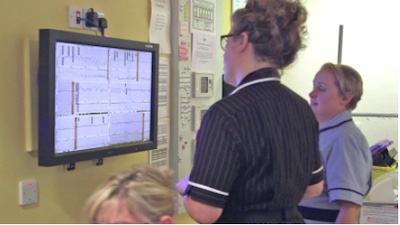
Bunbury Regional Hospital in Western Australia has gone live with the K2 Infant Guardian foetal monitoring system, the first in a wider roll out to the WA Country Health Service (WACHS) over the next year.
The $4.2 million investment through WA’s Royalties for Regions program will see the system rolled out to all WACHS maternity sites in 2021 and 2022.
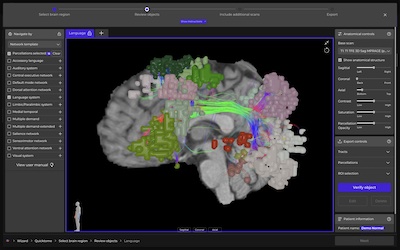
Sydney-headquartered neuroscience software developer Omniscient Neurotechnology (o8t) has received Therapeutic Goods Administration (TGA) clearance for its brain mapping platform Quicktome, along with clearance from the US FDA and Health Canada.
The technology, aimed at allowing neurosurgeons to visualise and understand a patient's brain networks prior to surgery, is part of the new field of ‘connectomics’, described as the understanding of brain connectivity in routine neurosurgical planning.
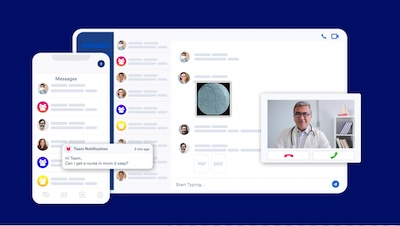
Healthcare communication and file-sharing platform Foxo is now available to more than 6100 practices using Best Practice, MedicalDirector and Zedmed following its integration with Pen CS’ Topbar application.
Foxo is being offered for free to GPs and promises one-click access to encrypted, real-time engagement and referral tools such as live referrals, video calling, real-time messaging and secure file sharing. It promises to help circumvent faxing, phone tag, email, and unsanctioned WhatsApp messaging.
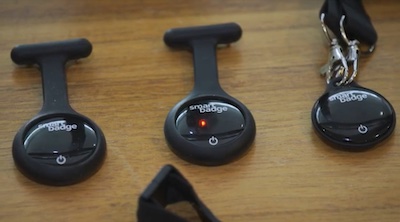
Canberra-headquartered Goodwin Aged Care has been running a trial of wearable technology for contact tracing in the event of a COVID-19 outbreak, which it hopes to extend throughout its operations for other infectious outbreaks of flu and gastroenteritis.
Goodwin has worked with medical workforce provider Aspen Medical on the trial of Smart Badge, which tracks proximity to other Smart Badges via Bluetooth. It comes with standalone software designed to control badge functionality and deliver accurate contact tracing.
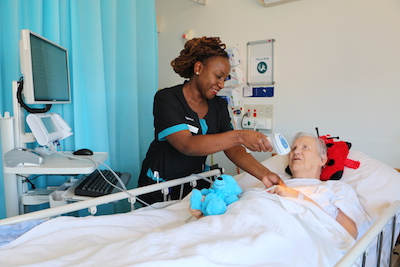
Capsule Technologies has won a $1,777,195 contract over five years to provide a solution for the ACT Health Directorate that will integrate medical devices with the new Epic digital health record due to go live in a big bang implementation in September next year.
Capsule, which was acquired by Philips in a $US635 million deal earlier this year, provides a vendor-neutral platform that it says can connect virtually all existing medical devices and clinical systems.

Clinical and practice management software vendor Best Practice Software will release a Medicare Web Services-compliant build of its Bp Premier PMS in the Saffron service pack two (SP2) version in last quarter of 2021.
Services Australia is upgrading the technology used by practice management software to connect to digital health services such as Medicare Online, the Department of Veterans Affairs, Eclipse claiming and the Australian Immunisation Register (AIR) in March 2022.

Telstra Health is taking a majority stake in Adelaide-headquartered billing, costing and revenue solution vendor PowerHealth.
Telstra Health is paying $95 million for a 70 per cent stake, valuing the company at $135m.
PowerHealth is best known for its PowerBilling & Revenue Collection (PBRC) system used by the majority of Australian hospitals, local health districts and hospital and health services.
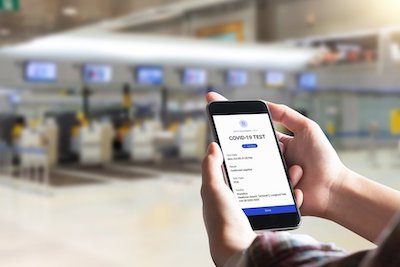
Vaccine passports roll out, telehealth use plateaus, South African digital health record and Covid, Denmark’s secure digital mail system, Induction Healthcare buys Attend Anywhere, US trustede exchange framework, Teladoc in Microsoft Teams, identity and access management, SMART health card verifier, wearables for long Covid
Can vaccine passports actually work?
Slate ~ Maria Carnovale ~ 14/07/2021
COVID-19 passports are digital systems that provide proof that their holder constitutes a low risk to public health.
Report: Telehealth use plateaus, but still 38 times higher than pre-pandemic levels
MedCity News ~ Anuja Vaidya ~ 11/07/2021
Though telehealth use has dropped since hitting its peak last April, it has stabilized at a much higher level than before the pandemic, says a new report.
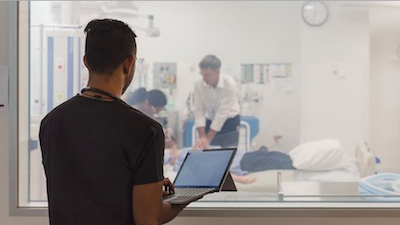
Our blog from last week on the difficulties some people have had trying to find and book in for a vaccination took on extra meaning this week, as metropolitan Sydney’s outbreak worsened and Melbourne snapped into a hopefully short and sharp lockdown. Vaccination is the key to all of us getting out of this, but besides the problem with adequate supply in Australia and late supply in New Zealand, it’s our IT systems that we are relying on to help us navigate our way out of disaster.
NSW Health’s systems are among those that have come in for a lot of criticism, and confusion still reigns over what exactly they plan to do about it, but we have also been closely watching what each state and territory in Australia is doing, along with the national system in New Zealand.
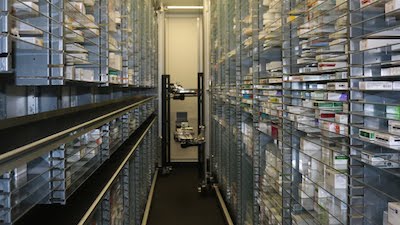
National adoption of electronic medications management systems allied to automatic dispensing cabinet technology is likely in the near future in Australia, although widespread use of fully closed loop medications management is probably further down the track, a new report shows.
The Society of Hospital Pharmacists of Australia’s (SHPA) Pharmacy Forecast Australia 2021 report looks at emerging trends that are forecast to affect acute care pharmacy practice in the next five years, covering areas such as specialist informatics pharmacists, electronic medications management systems and pharmacy telehealth provision.

The federal government has agreed to reinstate the level C telehealth consultation item number in COVID-19 hotspots, according to the Australian Medical Association.
The AMA is taking credit for the decision, which was introduced in this year’s budget and saw longer level C and D consultations by phone no longer supported with Medicare funding.
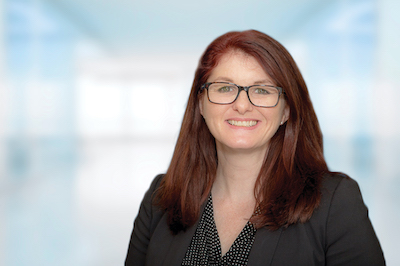
EMR vendor Cerner has appointed long-term staffer Julie Hoare as its new vice president and managing director for Asia Pacific, taking over from Cameron Burt, who departed last month.
Ms Hoare has more than 30 years’ experience in healthcare information technology and has been with Cerner since 1998, holding various roles including client results executive and operations leader.
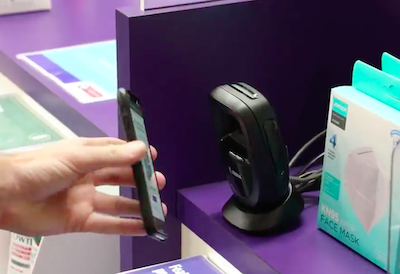
More than 11 million electronic prescriptions were issued in the 2020-2021 financial year, new data from the Australian Digital Health Agency shows.
The figures are now being boosted by the ability of Best Practice Software users to issue a digital token through MediSecure’s prescription exchange service (PES), with over 160 general practices using BP and MediSecure now issuing digital prescriptions to their patients.

Auckland-headquartered oral health software vendor Titanium Solutions has merged with Irish dental software firm Two-Ten Health to form what they say will be the world’s largest specialised enterprise oral health software company.
Titanium Solutions markets a range of enterprise oral health solutions for public health services, dental schools, corporate chains, and defence health services, while Two-Ten Health markets the Salud solution for dental schools, public health institutes, universities and private dental groups.

The Australian Digital Health Agency (ADHA) hopes to be able to simplify the National Authentication Service for Health (NASH) certificate renewal process following the move to new security standards on March 13 next year.
All security and authentication certificates from that date will be issued as secure hash algorithm 2 (SHA-2) certificates, in line with the mandate from the Digital Transformation Agency (DTA).
The change will mean healthcare organisations must be using SHA-2 compatible software. If they don’t, it will affect their software’s interfaces with the My Health Record, the Healthcare Identifiers Service, secure messaging services and other applications that require secure digital signatures, such as electronic prescribing.
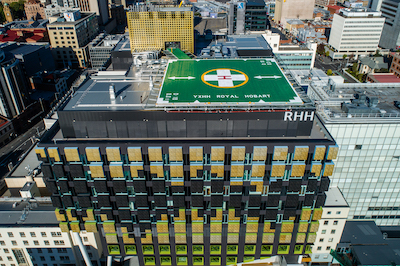
Consulting firm KPMG has won a $1.5 million tender to help develop a digital health strategy for Tasmania that aims to articulate what digital investments the state will need to invest in to create a digitally enabled health system.
The project will involve outlining a digital health technology target state and developing requests for tender for future digital health solutions.
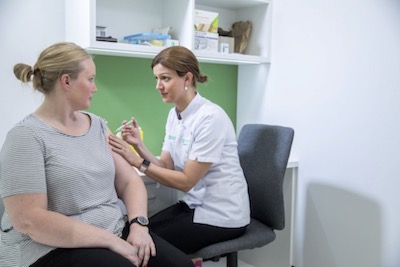
The first report into pharmacists’ immunisation reporting practices in Australia shows there are high levels of electronic submission of vaccination data to the Australian Immunisation Register (AIR), but that more could be done to increase uptake of automated software.
The National Centre for Immunisation Research and Surveillance (NCIRS) report comes as the reporting of vaccinations funded on the National Immunisation Program (NIP) became mandatory on July 1. All COVID-19 and influenza vaccines became mandatory on March 1.

More than 2000 general practices are now sending electronic referrals to the My Aged Care system, with over 20,000 forms submitted since the national service launched in 2019.
eReferral forms are integrated into practice management systems Best Practice, Medical Director, Genie and Medtech and allow patient information to be pre-populated and sent securely to My Aged Care.
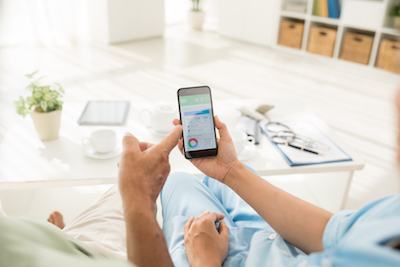
Digital health firms raise $14.7b, EU’s digital COVID certificate, India’s national digital health mission, India’s Co-WIN app, wellness programs fail, recording long COVID in GP software, useless MRI scans on CD, DICOM vulnerabilities, Scotland’s Covid vaccine history
Digital health companies smash another funding record, raising $14.7B in first half of the year
MedCity News ~ Elise Reuter ~ 06/07/2021
Since the start of the Covid-19 pandemic, more investors have turned their attention to digital health companies. So far, the trend doesn’t seem to be letting up.

On 20 March 2020, Australia closed its international borders as case numbers of COVID-19 exploded around the globe. Fifteen months later, NSW Health has still not been able to deliver a robust booking system to support the state’s vaccination efforts, with the current mashup of hastily implemented technology riddled with problems.
As is also the case for other Australians, to attempt to book their vaccination, NSW residents start their digital journey at the HealthDirect website where they input some basic information into an online Vaccine Eligibility Checker.

EMR vendor Allscripts has gone live with its electronic medical record at four emergency departments in Victoria simultaneously, part of its wider roll-out of the Sunrise EMR for the Gippsland Health Alliance.
The Sunrise Emergency Care module is now live at Central Gippsland Health Service, Bairnsdale Regional Health Service (BRHS), West Gippsland Healthcare Group and Bass Coast Health.
The vendor has also rebranded its BOSSnet digital health record to Allscripts Opal, and has migrated it over to the private cloud service provided by Atos as part of WA Health’s $409 million infrastructure replacement project HealthNext.

Sydney’s South Pacific Private Hospital has rolled out Vitro Software’s specialist mental health digital medical record, allowing patient clinical information to be captured digitally at the patient’s bedside.
The 54-bed private hospital, which treats addiction, trauma and mental health conditions, is moving away from paper to a digital environment with the aim of eliminating the costs and challenges of managing paper records.
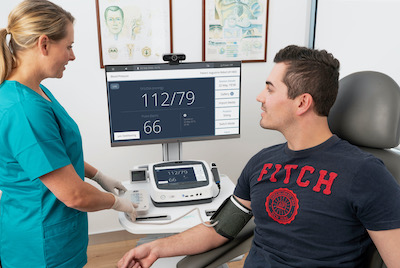
Western Australia’s Kimberley Aboriginal Medical Services (KAMS) is rolling out a new telehealth service across its region to provide care to some of the most remote communities in the country.
KAMS is using Sydney-based Visionflex’s ProEX telehealth system, which includes real-time, high-definition video conferencing along with medical devices that allow healthcare professionals to examine, diagnose, monitor and treat patients, with particular emphasis on ear, nose and throat conditions, as well as cardiac and respiratory consults.

Chemist Warehouse is rolling out new digital receipts functionality using NAB-backed Slyp technology.
The system offers customers the option of itemised, digital receipts and is now live across 460 stores, using the NAB mobile banking app.

The Australian Digital Health Agency has released a request for tender for a mobile-native app for the My Health Record, which is expected to complement the two existing mobile apps connecting to the system and also provide a vaccine passport showing COVID-19 immunisation status.
The app is expected to be built for iOS, iPad OS and Android devices and will use the My Health Record’s mobile optimised FHIR standard gateway.

InterSystems has released the latest version of its TrakCare unified healthcare information system, T2021, with new features to support the increasing demand for telehealth and virtual care.
T2021 is integrated with InterSystems’ HealthShare Personal Community, a cross-EMR patient portal, which will enable new features including outpatient bookings and the synchronisation of third-party app data integrated into patient records.

Sydney-headquartered digital health company Energesse has developed a pandemic response management and preparedness solution called PMme to help healthcare organisations identify gaps and strengths relative to best practice and monitor progress in compliance.
The tool, which has been trialled at Heathcote Health in Victoria, is being developed into a cloud-based solution to provide a personalised audit that will eventually be able to provide decision support in real time.

Consulting firm Deloitte has won a contract worth $17.9 million over three years to build the new Health Information Gateway, the first phase in the Australian Digital Health Agency’s health infrastructure modernisation program.
The new gateway will be based on modern web services and standards for health information exchange and clinical terminologies, such as FHIR, and is replacing an Oracle system.
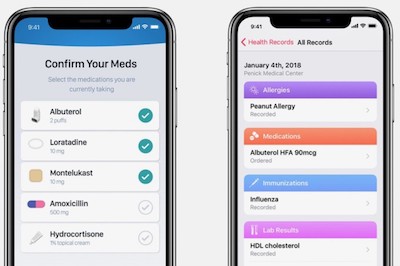
How FHIR underpins Apple Health Records, Google API for Android digital passport, US VA to keep Cerner, big digital task for UK’s new health minister, demand for telehealth going south, Wales joins NHS digital pass
Excited to share Apple Health Records with a doctor? Thank data interoperability standards like SMART and FHIR
FierceHealthcare ~ Dave Muoio ~ 30/06/2021
Apple said the sharing feature’s fall launch will be supported by six EHR vendors: Cerner, DrChrono, Athenahealth, Allscripts, CPSI and Meditech Expanse.

The IT solutions behind Australia’s and New Zealand’s COVID-19 responses have come in for some questioning over the 18 months of the pandemic, and no one seems to agree on whether they have proven to be effective or not, whether it be mobile phone proximity apps like Australia’s COVIDsafe (general consensus: dud) or QR code check-in systems (thumbs up).
They all do appear to be quite expensive though, which is nothing new, and as always when there are copious amounts of public money on offer, hands immediately reach out. This has never been more true than in the roll-out of online booking, inventory management, and vaccination registration systems on a jurisdictional and national scale.

The Australian Digital Health Agency’s new Provider Connect Australia (PCA) service is due to launch in January 2022, but it will be several years until Medicare is added as a business partner due to the ongoing healthcare payments modernisation project, ADHA spokespeople say.
The first release of the system, formerly known as the service registration assistant (SRA), is due to be rolled out in January, with practice managers able to access the service through a portal. The service will also integrate with clinical information and practice management systems, with the agency planning to roll out test environments complete with FHIR application programming interfaces (APIs) in October.
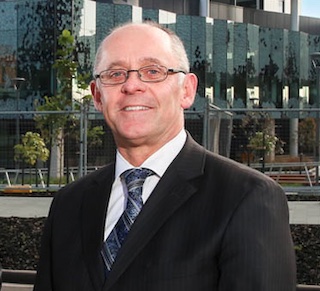
Former Allscripts and Pro Medicus chief David Chambers has been elected chairman of ASX-listed Hills Ltd, following the decision by long-term chair Jennifer Hill-Ling to step down after 16 years.
Ms Hill-Ling is the granddaughter of Hills co-founder Harold Hill Ling and daughter of the company’s long-term former CEO, Bob Hill-Ling.
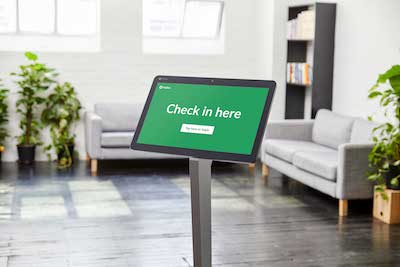
Patient engagement platform HotDoc has entered the hospital market and is rolling out solutions for two of the largest hospitals in Australia for COVID-19 and flu vaccinations for staff and patients.
Austin Health in Melbourne will begin a roll out this week to support its main hospital with a scheduling solution, eligibility screening and stock management for AstraZeneca and Pfizer COVID-19 vaccinations, as well as booking online or via call centre.

Symbion’s pharmacy dispensing system Minfos has rolled out a new vaccine appointment interface that will allow patient details from HealthEngine’s online booking platform to be synced into Minfos when booking an appointment.
The technology has been built specifically for TerryWhite Chemmart customers using Minfos and HealthEngine, but providers of other booking platforms can apply to use the API.
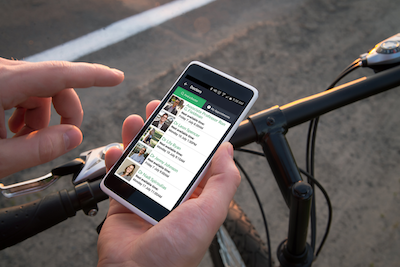
Patient engagement platform HotDoc has rolled out the ability for people aged under 40 to book a COVID-19 vaccine online within hours of the change in official government policy on Monday, and is also now allowing patients to search for an appointment based on the brand they are eligible for.
While some confusion still reigns over the official advice on whether under 40s should get the AstraZeneca vaccine, the ability to book into a general practice to do so is now available.

Cerner Asia Pacific managing director Cameron Burt has left the company after 23 years.
A Cerner spokesperson said Mr Burt was leaving to pursue other opportunities and Australia remained a priority market for Cerner.
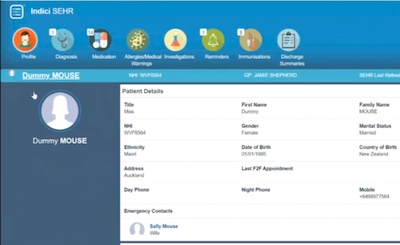
The Auckland region Your Health Summary (YHS) shared electronic health record is now being used by 147 general practices with almost half a million primary care health records uploaded since it went live in April 2020.
The system, which uses Valentia Technologies’ Indici data extraction utility and is hosted in Valentia’s cloud, is an opt-in, read-only service that aims to give a summary of a patient’s long-term health conditions, allergies and medications.
The Indici tool automatically extracts data from practice management systems, including Indici itself, Medtech32 and Medtech Evolution, and is accessible directly through Indici or a portal.
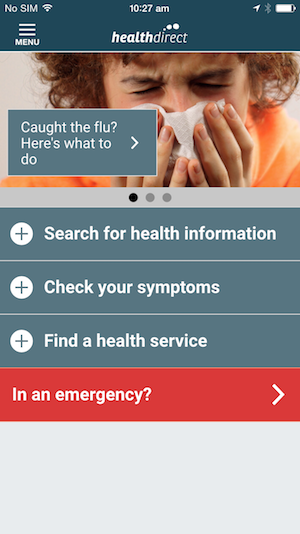
Digital and virtual health services provider Healthdirect Australia has appointed former Babylon Health APAC medical director Nirvana Luckraj as its new chief medical officer (CMO).
Dr Luckraj has local and international experience in remote and virtual care, and she is also an expert in clinical artificial intelligence and digital health.

€500m for Irish ransomware recovery, vaccine passport live in 17 EU countries, Scrips sued over hack, HoloLens for remote surgery, NHS data strategy, EMRs underperform in primary care, digital divide in South Africa, Amazon digital health accelerator
Irish ransomware attack recovery cost estimate: $600 million
Healthcare Info Security ~ Akshaya Asokan ~ 24/06/2021
The recovery costs for the May ransomware attack on Health Service Executive, Ireland's publicly funded healthcare system, is likely to total $600 million, says Paul Reid, HSE's director general.

Much has been said over the last 18 months about how the COVID-19 pandemic has ushered in a revolution in digital health adoption, but there’s a chance these predictions might turn out to be a bit overhyped, particularly when it comes to telehealth (or telephone health as it probably should be named for now).
What has become more obvious as the pandemic has drawn out is the benefit of automation when it comes to health service efficiency, especially in under-the-radar areas like practice management system interoperability, which may well trigger longer term benefits than the tech du jour.
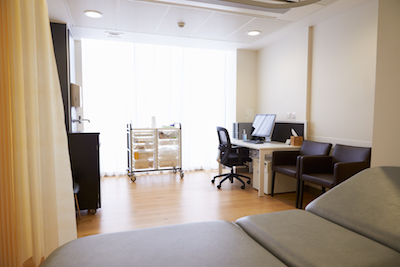
The Australian Digital Health Agency (ADHA) has changed the name of its service registration assistant (SRA) tool and is now planning to roll it out nationally following a successful proof of concept trial in northern NSW last year.
What was previously known as the SRA and is now being called Provider Connect Australia is aimed at streamlining the process for healthcare organisations to keep contact details such as provider numbers and secure messaging addresses up to date.
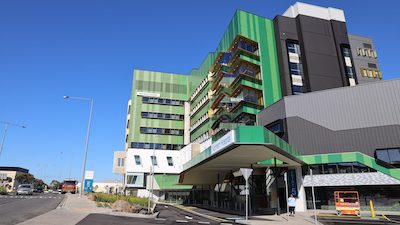
Melbourne’s Northern Health will roll out Oneview Healthcare’s new Cloud Start patient experience platform at its new $162.3 million inpatient unit expansion project later this year, the first user in Australia of its new cloud product and the first in the Victorian public sector.
The ASX-listed Oneview has also signed a five-year extension of its existing contract with private hospital provider Epworth Healthcare across its eight hospitals in Victoria.

The first third-party application is live in the production environment of ANZ practice management system vendor Medtech Global’s new Application Layer EXchange (ALEX) platform.
Check-in kiosk and queue management vendor Jayex Healthcare is live in one NZ general practice, and fellow NZ PMS vendor MyPractice is also due to start using the methodology for its partnership program in the next few months.
Medtech plans to implement the system for its Australian GP sites, and is also in talks with the big Australian PMS vendors to get them on board, promising that ALEX will be a low-cost, highly scalable solution that will fundamentally alter the way integrations between PMSs and third-party apps occur in both countries.
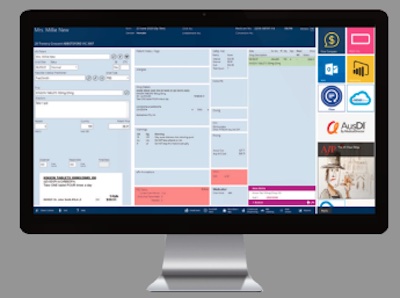
Fred IT Group is using a new artificial intelligence tool to predict medication directions in its new dispensing platform Fred Dispense Plus.
Fred says the new tool – called Fred AID, for Artificial Intelligence Directions – is Australia’s first use of artificial intelligence in community pharmacy.
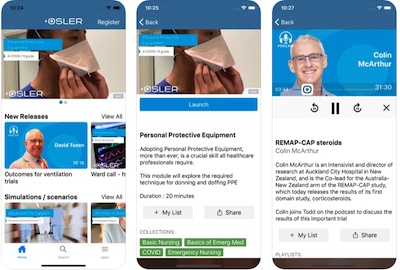
Queensland’s Osler Technology has launched a new version of its app for health and medical education, offering a free version that it likens to a Netflix for healthcare education resources.
The app contains the content that Osler has developed over the last four years, including all of its learning materials and modules, podcasts, quizzes, articles, procedures and scenarios for doctors, nurses, paramedics and students.

The NSW government has allocated $141 million in the forthcoming financial year to its single digital patient record (SDPR) project, which aims to unify the electronic medical record solutions currently in use to enhance care coordination.
It has also providing extra funding for the fast-track roll-out of electronic prescribing in partnership with the federal government, along with $14.3 million for its long-delayed real-time prescription monitoring (RPTM) system.
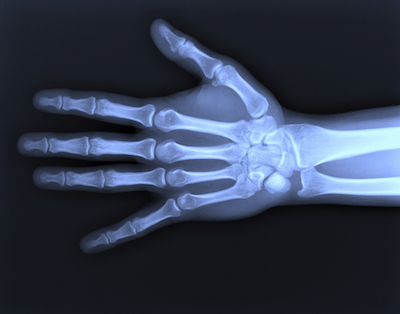
Healius radiology subsidiary Healthcare Imaging Services (HIS) has connected to the My Health Record, with its three locations in Canberra now uploading diagnostic imaging reports to the system.
Healthcare Imaging Services has 140 imaging centres around the country and is one of Australia’s largest diagnostic imaging providers.

A large study investigating the collection of user data in mobile health and medical apps has found that the majority included code that could potentially collect user data but many featured inadequate privacy disclosures.
The Macquarie University study of more than 20,000 mHealth apps in the Google Play store in Australia analysed each app’s privacy policy as well as advertisements and trackers and personal data transmission in network traffic.

World’s 250 smartest hospitals, NHS digital midwife, malware hits Humber River, CSIRO’s Ontoserver live in UK, patients want return to face to face, more EMRs sharing with Apple, ransomware operator out of business
World's Best Smart Hospitals 2021
Newsweek ~ David H Freedman ~ 16/06/2021
They lead in their use of AI, robotic surgery, digital imaging, telemedicine, smart buildings, information technology infrastructure and EHRs.

Problems appear to be continuing to beset Far North Queensland’s Regional eHealth Project (ReHP), a long-winded drama first touted in 2012 which has officially come to an end at a cost of $34.5 million (at least according to the state’s very useful Digital Projects Dashboard).
Funding was originally obtained in 2012 from a federal government hospital investment grant, although the project itself only really kicked off in 2015, with the aim of building a primary and community care-focused eHealth solution for about 58 clinics and small hospitals in the Cairns, Cape York and Torres Strait regions.

A consortium of New Zealand technology firms has partnered with data science research organisation Precision Driven Health, Massey University and the NZ Telehealth Leadership Group to research and develop technology which focuses on creating virtual healthcare for older, underserved adults living in rural settings.
Technology partners include practice management software vendors Medtech Global and Intrahealth, along with health IT firm Vensa Health.
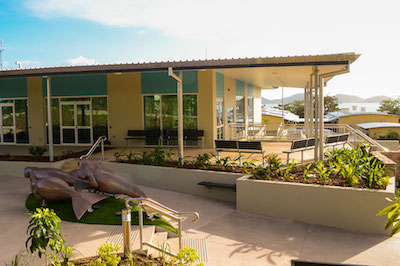
Concerns about patient safety raised by clinicians using Far North Queensland’s new Regional Information via Electronic Records (RIVeR) system are so serious that one union is advising members to use alternatives and another is calling for a complete pause in its use until the concerns are addressed.
RIVeR, which is part of the $35 million Regional eHealth Project (ReHP) first funded in 2012, is a shared electronic health record based on Telstra Health’s Communicare primary and community care software and has been rolled out to 28 rural and remote sites in the Cairns and Hinterland Hospital and Health Service (CHHHS) and Torres and Cape HHS (TCHHS) catchments.

Waikato District Health Board says it has restored a number of foundational services in the past week, including pathology and radiology services, patient administration and digital medical records.
The DHB is not yet operating on full functionality and there are still significant limitations, but medical director Graham Mills said there was now clear visibility of patients and their information.

Directory and online booking solution HealthEngine has rolled out a new influenza vaccine booking feature to accompany its Covid-19 vaccine capability that it says will elevate the importance of flu vaccinations while the country is fixated on the Covax roll-out.
HealthEngine has also developed a dual staff bookings feature as part of its practice efficiency tools to allow a multi-staff approach that can book two staff members such as a GP and nurse against appointments for immunisations as well as wound care and iron infusions.

NSW Health has developed an app that aims to enhance the detection of sepsis in emergency department waiting rooms, using Internet of Things device integration and artificial intelligence to flag patients most at risk of sepsis.
The project involved analysing five years of de-identified data from the state’s Cerner electronic medical record of patients presenting to Western Sydney Local Health District emergency departments and using artificial intelligence to detect complex patterns in patients who did develop the condition.

Southern District Health Board (SDHB) is aiming to achieve HIMSS Level 6 accreditation for the new Dunedin Hospital, with the digital investment expected to top $NZ215 million.
The $1.4 billion hospital will be opened in two stages, with the outpatient building planned to open in January 2025 and the inpatient building set for April 2028.

Updated: Best Practice Software has released an update to the Saffron edition of its Bp Premier practice management system, providing support for the MediSecure prescription exchange service and its ability to issue eScript tokens.
BP says the Saffron service pack 1 (SP1) includes support for sending electronic prescription tokens if MediSecure is enabled, with the workflow for sending the same for both eRx and MediSecure. Best Practice has had an integration with eRx for many years, but only allows users to use one of eRx or MediSecure for a provider, not both.
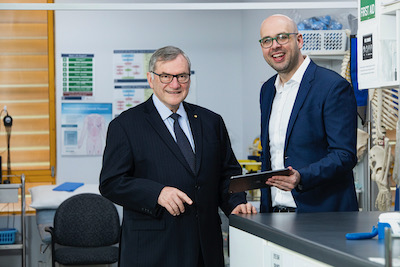
Brisbane-headquartered general practice insights platform Cubiko has raised $1.7 million in its second round of seed funding and plans to use the money to improve integrations with existing medical software platforms and increase market share.
Cubiko was launched in 2019 by by data analytics firm Aginic in association with Brisbane general practice Inala Primary Care. It raised $475,000 in its first round and was one of the first approved integrators in Best Practice Software’s Bp Partner Network.

Hospital pays ransom, app to support long Covid, Germany’s digital vax certificate, UK defence medical information systems, Facebook wearable, Epic telehealth in 200 languages, NHS delays GP data sharing, bots promote Covid misinformation, Walmart extends telehealth offering
Hospital pays ransom in exchange for promised data destruction
Healthcare Info Security ~ Marianne Kolbasuk McGee ~ 07/06/2021
The recent decision by a Massachusetts-based hospital to pay a ransom in exchange for promises by the attackers to destroy stolen data spotlights the difficult choices and pressure many healthcare entities are facing in the wake of cyberattacks.
Mobile app for long Covid launched in 27 NHS trusts
Digital Health News ~ Andrea Downey ~ 09/06/2021
A mobile app and clinical website to support people living with long Covid has been launched in 27 NHS trusts.

Pulse+IT collectively choked on its early winter porridge this week when we read an edition of the Australian Financial Review’s Street Talk column which touted the sale of general practice management system vendor MedicalDirector by its private equity owners for the astoundingly silly sum of $500 million.
As we have noted before, anyone seriously considering that sort of money for a middle-sized Australian medical software firm needs to have their heads read. The Fin was quoting $300m three years ago and we hear this is closer to what is being asked for today, but it is still a highly optimistic valuation for a company that is not really going anywhere in a hurry.
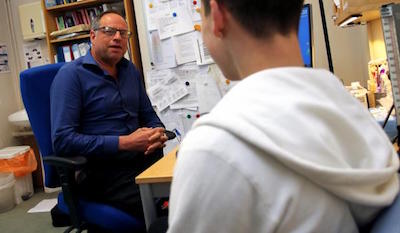
Auckland GP cooperative and primary health organisation ProCare has partnered with the University of Auckland and the University of Otago to run a large-scale population health study on the effects of multi-morbidity on the risk of hospitalisation or death from heart disease or stroke.
ProCare-collected data on more than 550,000 Aucklanders will be anonymised and linked with regional blood test results from the TestSafe clinical data repository as well as national health databases reporting hospitalisations, deaths and community pharmacy dispensing to track patients over time and determine the effects of having two or more long-term conditions on the risk of hospitalisation or death from heart disease or stroke.

Melbourne’s Western Health is the first Victorian healthcare provider to roll out the new myBeepr clinical communication platform, going live in February across its four major sites.
The health service, which includes Sunshine Hospital, Footscray Hospital, Williamstown Hospital and Sunbury Day Hospital, has since seen a massive reduction in non-secure messaging platforms such as WhatsApp and SMS.

The Department of Health has set up a new online reporting tool on the My Aged Care provider portal for residential aged care providers and in-home and community aged care services to provide weekly reports of numbers of workers receiving COVID-19 vaccinations.
The move comes after sustained criticism of the government’s COVID-19 vaccination roll-out to aged care, with DoH officials admitting in Senate Estimates that they not only didn’t know how many aged care workers had been vaccinated, but how many workers there are in the sector in total.
Copyright © 2025 Pulse IT Communications Pty Ltd. No content published on this website can be reproduced by any person for any reason without the prior written permission of the publisher. If your organisation is featured in a Pulse+IT article you can purchase the permission to reproduce the article here.
Website Design by Get Leads AU.